The Centers for Medicare & Medicaid Services (CMS) on April 7 proposed a 2.1-percent, Medicare payment increase to the per-diem base rate for inpatient psychiatric facilities (IPF) for fiscal year (FY) 2022.
This adjustment would increase the per-diem base rate to $833.50 from $815.22 and the electroconvulsive therapy (ECT) rate to $358.84 from $350.97.
CMS proposed several changes for inpatient psychiatric care in 2022, such as aligning an IPF policy regarding displaced residents from IPF closures and closures of IPF teaching programs with the policy changes that the agency made final in its FY 2021 IPPS rule.
In its FY 2022 proposed rule, CMS recommended the following changes to the IPF Quality Reporting Program:
- Starting in FY 2023, the agency would add a requirement to report Covid-19 Vaccination Coverage Among Healthcare Personnel in the Centers for Disease Control and Prevention’s (CDC) National Healthcare Safety Network web portal;
- For FY 2024, CMS would substitute the Follow-up After Psychiatric Hospitalization (FAPH) measure for the Follow-up After Hospitalization for Mental Illness (FUH) measure. The FAPH includes patients with substance use disorders and also expands the provider types who can provide follow-up care to include primary care providers;
- For FY 2024, the agency would remove the three following measures:
- Alcohol Use Brief Intervention Provided or Offered and Alcohol Use Brief Intervention Provided (SUB-2/2a),
- Tobacco Use Brief Intervention Provided or Offered and Tobacco Use Brief Intervention Provided (TOB-2/2a), and
- Timely Transmission of Transition Record -Discharges from an Inpatient Facility to Home/Self Care or Any Other Site of Care.
CMS is requesting information about how to develop a patient experience-of-care measure, as well as comments on including a patient-reported outcomes measure that assesses functional outcomes. The agency also wants feedback on measures either included in the IPFQRP now or that could be added that would be appropriate for digital data collection.
The agency is also seeking comment about how to modify reporting in a way that would improve collecting information on health disparities. CMS asked specifically for feedback on stratification of quality measure results by dual eligibility, race and ethnicity, improving demographic data collection, and potential creation of a facility equity score synthesizing results across multiple social risk factors.
CMS will accept public comments on the rule until June 7.

